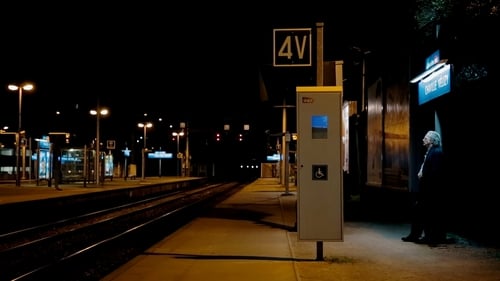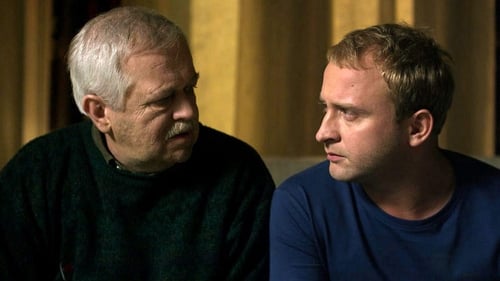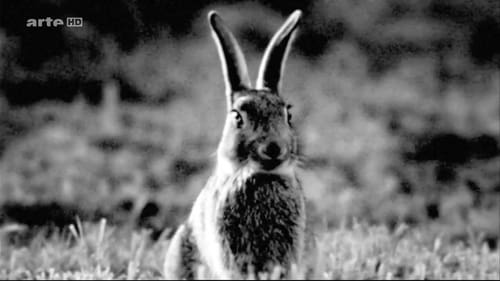Piotr Rosołowski
Nacimiento : 1977-01-01, Dobre Miasto, Poland

Cinematography
A film that depicts the young Ukrainian generation scarred by war and political breakthroughs. The film's starting point is the preparation for a play based on the motifs of Shakespeare's Hamlet, which, combined with an intense glimpse into the lives of the characters, creates a powerful portrait of a generation having to confront their war trauma and tackle the painful past, which now after the Russia's invasion of Ukraine becomes their present and future alike.

Writer
A film that depicts the young Ukrainian generation scarred by war and political breakthroughs. The film's starting point is the preparation for a play based on the motifs of Shakespeare's Hamlet, which, combined with an intense glimpse into the lives of the characters, creates a powerful portrait of a generation having to confront their war trauma and tackle the painful past, which now after the Russia's invasion of Ukraine becomes their present and future alike.

Director
A film that depicts the young Ukrainian generation scarred by war and political breakthroughs. The film's starting point is the preparation for a play based on the motifs of Shakespeare's Hamlet, which, combined with an intense glimpse into the lives of the characters, creates a powerful portrait of a generation having to confront their war trauma and tackle the painful past, which now after the Russia's invasion of Ukraine becomes their present and future alike.

Cinematography
A Sherpa family breaks a taboo and climbs the most holy of mountains to earn money for their son’s education. They accompany a western expedition on East Wall of the Khumbakarna Mountain, a wall that has never been climbed before. ‘The Wall of Shadows’ tells the story of an encounter between a young Sherpa boy and an experienced western mountaineer at the foot of the sacred mountain. Will they face the wrath of mountain Gods?

Writer
A Sherpa family breaks a taboo and climbs the most holy of mountains to earn money for their son’s education. They accompany a western expedition on East Wall of the Khumbakarna Mountain, a wall that has never been climbed before. ‘The Wall of Shadows’ tells the story of an encounter between a young Sherpa boy and an experienced western mountaineer at the foot of the sacred mountain. Will they face the wrath of mountain Gods?

Director of Photography

Director of Photography
Born in Abkhazia and raised in Soviet Georgia, Sipa Labakhua had to flee with his family to Moscow when the USSR collapsed and war broke out early 90’s. Years after his untimely return to his warridden birthplace, Sipa takes to the road with his autobiographical one-man marionette show. While provoking audiences with his own history of displacement and war, he collects the personal memories and dreams of people from different backgrounds: Abkhazian nationalists, Orthodox priests, Syrian refugees, Georgian farmers and Russian hippies.

Camera Operator
A few years before the first manned flight to the moon, Pan Am began selling tickets there. 100,000 people joined the club of the first space travelers. Why did they want to leave Earth and what did they hope to find on the moon?

Writer
A cinematic journey on the trail of a mysterious filmmaker. Prince Michal Waszynski, Poland's top pre-war, director who later became an influential figure in the broader European film scene. He produced big Hollywood cinema hits with Sophia Loren and Claudia Cardinale, but his most spectacular creation was his own life. Prince Michal was an extraordinary human chameleon who, with the help of the magical invention of cinema, continually changed his identity.

Director
A cinematic journey on the trail of a mysterious filmmaker. Prince Michal Waszynski, Poland's top pre-war, director who later became an influential figure in the broader European film scene. He produced big Hollywood cinema hits with Sophia Loren and Claudia Cardinale, but his most spectacular creation was his own life. Prince Michal was an extraordinary human chameleon who, with the help of the magical invention of cinema, continually changed his identity.

Director of Photography
In the sixties, Peter Handke was one of the first to show how the business works: the writer as angry young man and pop star of the literary scene. As soon as he was on the bestseller lists, he turned his back on the hype. For many years, he has lived and worked in his house in a Parisian suburb, more quietly and more hospitably. Peter Handke's precise, free gaze becomes perceptible in his texts, his conversations, the cosmos of his notebooks.

Director of Photography
Art, politics and motorcycles - on the occasion of his 90th birthday John Berger or the Art of Looking is an intimate portrait of the writer and art critic whose ground-breaking work on seeing has shaped our understanding of the concept for over five decades. The film explores how paintings become narratives and stories turn into images, and rarely does anybody demonstrate this as poignantly as Berger.

Director of Photography
Rafael - the minister of sports of an unrecognized country, and Natasha - a Russian opera singer, try living together in Abkhazia - a war-torn future-less country. Observing their difficult relations, we see life in a place marked by war and nationalism. The film portrays trapped people dreaming of peace, normality and happiness.

Director
Rafael - the minister of sports of an unrecognized country, and Natasha - a Russian opera singer, try living together in Abkhazia - a war-torn future-less country. Observing their difficult relations, we see life in a place marked by war and nationalism. The film portrays trapped people dreaming of peace, normality and happiness.

Screenplay
An unknown real story of a Haitian vodou priest, Amon Frémon, who visited the People’s Republic of Poland in 1980. A metaphysical view on time of socialism through the eyes of a stranger form a different culture.

Director
An unknown real story of a Haitian vodou priest, Amon Frémon, who visited the People’s Republic of Poland in 1980. A metaphysical view on time of socialism through the eyes of a stranger form a different culture.

Director of Photography
Pawel, a Polish man in his early 30s, makes a living with his father Zygmunt importing second-hand clothing from the North of France to Southern Poland. On his way back from one of regular "business trips", Pawel is shocked to discover his father's picture on the cover of a Polish tabloid newspaper. The headline "traitor" is written next to his name. Zygmunt is a genuine hero of the struggle against totalitarianism and a recognized member of the "Solidarnosc" labor movement of the 80s. But now, Zygmunt is suddenly accused by the paper of having acted as a secret informer called THE MOLE by the communist regime.

Director of Photography
"Rabbit à la Berlin" cuenta las desventuras de unos conejos salvajes que vivían en la franja de la muerte del Muro de Berlín y que, tras la caída del muro y al ver que de repente se quedan sin techo, se ven obligados a adaptarse a la nueva situación y a buscar un nuevo lugar donde vivir. El filme es así una especie de alegoría que describe la situación de Europa del Este en este momento tan decisivo de la historia. Según el director y el cámara Piotr Rosolowski, la película intenta contar de nuevo una historia desde el punto de vista de los animales como ya se hizo en su momento con "Goat Walker".

Writer
"Rabbit à la Berlin" cuenta las desventuras de unos conejos salvajes que vivían en la franja de la muerte del Muro de Berlín y que, tras la caída del muro y al ver que de repente se quedan sin techo, se ven obligados a adaptarse a la nueva situación y a buscar un nuevo lugar donde vivir. El filme es así una especie de alegoría que describe la situación de Europa del Este en este momento tan decisivo de la historia. Según el director y el cámara Piotr Rosolowski, la película intenta contar de nuevo una historia desde el punto de vista de los animales como ya se hizo en su momento con "Goat Walker".

Director of Photography
A department store security guard is secretly in love with a clerk in the store's bookshop. When he witnesses a seeming rival being attacked in the train, he gets off instead of helping him. Not being able to deal with his bad conscience, his formerly controlled life breaks down.

Writer


















